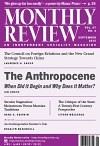Americas
As we veteran activists of the 1960s and early ’70s enter our años del retiro, it is time for reflection, summation, and most importantly sharing what we have learned with those reaching to grab the baton. Many of us, now grandparents, are getting questions from our grandkids and kids about our lives in the “golden age” of U.S. social movements. … Bill Gallegos has been an activist since the 1960s, when he became involved in Crusade for Justice, a revolutionary Chicano nationalist organization. He has since emerged as a leading socialist environmental justice activist, and is the former executive director of Communities for a Better Environment. | more…
Exploring the Architecture of Detention
tings chak, Undocumented: The Architecture of Migrant Detention (Montreal: Architecture Observer, 2014), 112 pages, 22 euros ($30.60 from Amazon), paperback.
Over the past six years, more than 100,000 people, including children, have been jailed in Canada, many without charge, trial, or an end in sight, merely for being undocumented.… Locked away from the public eye, they become invisible.… Like the people within, immigrant detention centers are often invisible as well. Photos and drawings of these places are rarely public; access is even more limited. Canada has three designated immigrant prisons, and it also rents beds in government-run prisons to house over one-third of its detainees.… Undocumented: The Architecture of Migrant Detention begins to strip away at this invisibility. In graphic novel form, Toronto-based multidisciplinary artist tings chak draws the physical spaces of buildings in which immigrant detainees spend months, if not years. In crisp black and white lines, chak walks the reader through the journey of each of these 100,000+ people when they first enter an immigrant detention center. | more…
Anyone who really wants to understand U.S. immigration policy needs to read the brief history of the U.S.-Mexico border in Aviva Chomsky’s often-brilliant new book on immigration.… Politicians constantly tell us we have lost control of the border. In fact, as Undocumented demonstrates, never in the 166 years since the border was established by the 1848 Treaty of Guadalupe Hidalgo has it been so tightly controlled as it is now. For nearly half its history it was exactly the thing immigration opponents say they fear most—an open border. The first serious restrictions did not come until a head tax and a literacy requirement were imposed in 1917, and even then there was an exemption for Mexican workers, the people most likely to enter the country from the south.… The United States wanted this labor for a reason: it was cheap and disposable. | more…

In the U.S. case, imperialism has always been closely tied to a system of racial domination at home. As W.E.B. Du Bois wrote some sixty years ago in “Negroes and the Crisis of Capitalism in the United States” (Monthly Review, April 1953; reprinted in April 2003),
The United States, with its existing social structure, cannot abolish the color line despite its promises. It cannot stop injustice in the courts based on color and race. Above all, it cannot stop the exploitation of black workers by white capital, especially in the newest South. White North America beyond the urge of sound economics is persistently driving black folk toward socialism. It is the United States which is straining every effort to enslave Asia and Africa, and educated and well-to-do black Americans are coming to know this just as well as anybody. They may delay their reaction; they may hold ominous silence. But in the end, if this pressure keeps up, they will join the march to economic emancipation [the struggle against capitalism], because otherwise they cannot themselves be free.
Despite the gains of the civil rights era, the reemergence of what is now called the “New Jim Crow,” based on the mass incarceration and repeated police killings of unarmed black men, shows that the old systems of racial control have been “modernized” in the present, maintaining the color line, if in modified fashion: not only in relation to black Americans—though they have a special position emerging out of the whole legacy of slavery…—but also with respect to all other people of color as well. | more…
The Council on Foreign Relations Proposes a New Grand Strategy Towards China
The Council on Foreign Relations (CFR) is the think tank of monopoly-finance capital, Wall Street’s think tank. It is also a membership organization: the ultimate networking, socializing, strategic-planning, and consensus-forming institution of the dominant sector of the U.S. capitalist class.… It is the world’s most powerful private organization, the “high command” body of the U.S. plutocracy. The Council has an almost century-long history of forming study groups to plan the United States’ overall “grand” strategic policies. It sets the agenda for debate, builds consensus among both the powerful and attentive publics, and then inserts its own network of people into public office to implement its favored doctrines in the real world. One of its latest efforts, a study group on U.S. grand strategy toward China, completed its work and issued a report in March 2015—approved by the CFR board of directors—entitled Revising U.S. Grand Strategy Toward China. | more…
Mainstream Versus Marxian Traditions
Paul M. Sweezy wrote in 1982, “it is my impression that the economics profession has not yet begun to resume the debate over stagnation which was so abruptly interrupted by the outbreak of the Second World War.” Thirty years later things appear to have changed. Former U.S. Secretary of Treasury Larry Summers shocked economists with his remarks regarding “stagnation” at the IMF Research Conference in November 2013, and he later published these ideas in the Financial Times and Business Economics.… Summers’s remarks and articles were followed by an explosion of debate concerning “secular stagnation” [which] can be defined as the tendency to long-term (or secular) stagnation in the private accumulation process of the capitalist economy, manifested in rising unemployment and excess capacity and a slowdown in overall economic growth…. Responses to Summers have been all over the map, reflecting both the fact that the capitalist economy has been slowing down, and the role in denying it by many of those seeking to legitimate the system. | more…
Roberta Salper, Domestic Subversive: A Feminist Take on the Left, 1960–1976 (Tucson: Anaphora Literary Press, 2014), 236 pages, $20, paperback.
Since second wave feminism is the largest social movement in the history of the United States, it is surprising that there are fewer than a dozen autobiographies written by the activists of the late 1960s and early ’70s. Roberta Salper’s Domestic Subversive is a welcome addition, especially because it is well-written, often with humor, and promises an anti-imperialist feminist analysis.… Domestic Subversive is a feminist’s take on a range of organizations of the left from 1960 to 1976: the student movement in Spain, New Left movement in the United States, Marxist-Leninist Puerto Rican Socialist Party in the United States and Puerto Rico, and a prestigious liberal think tank in Washington, D.C., the Latin American Unit of the Institute of Policy Studies (IPS), where she worked as a Resident Fellow. | more…

May’s Review of the Month, “Honor the Vietnamese, Not Those Who Killed Them” by MR Associate Editor Michael D. Yates, has elicited many responses. One writer said that Yates had written the best, but perhaps the first, Marxist analysis of the war. Another praised Monthly Review for having the courage to publish this article. Still a third predicted that in the more distant future, humanity would embrace the essay’s judgment and honor the Vietnamese people for their heroic struggle against the overwhelming might of the U.S. military.… In light of these comments, as well as the subject matter of this double issue of Monthly Review on imperialism, we thought it might be worthwhile to say something more about what the Vietnamese themselves naturally enough call the American War, with an eye toward drawing important lessons useful for contemporary radicals. | more…
It is now a universal belief on the left that the world has entered a new imperialist phase.… The challenge for Marxian theories of the imperialist world system in our times is to capture the full depth and breadth of the classical accounts, while also addressing the historical specificity of the current global economy. It will be argued in this introduction (in line with the present issue as a whole) that what is widely referred to as neoliberal globalization in the twenty-first century is in fact a historical product of the shift to global monopoly-finance capital or what Samir Amin calls the imperialism of “generalized-monopoly capitalism.” | more…
Lenin, Bukharin, Stalin, and Trotsky in Russia, as well as Mao, Zhou Enlai, and Den Xiaoping in China, shaped the history of the two great revolutions of the twentieth century. As leaders of revolutionary communist parties and then later as leaders of revolutionary states, they were confronted with the problems faced by a triumphant revolution in countries of peripheral capitalism and forced to “revise”…the theses inherited from the historical Marxism of the Second International.… With the benefit of hindsight, I will indicate here the limitations of their analyses. Lenin and Bukharin considered imperialism to be a new stage (“the highest”) of capitalism associated with the development of monopolies. I question this thesis and contend that historical capitalism has always been imperialist, in the sense that it has led to a polarization between centers and peripheries since its origin (the sixteenth century), which has only increased over the course of its later globalized development. | more…
Medicine and public health have played important roles in imperialism. With the emergence of the United States as an imperial power in the early twentieth century, interlinkages between imperialism, public health, and health institutions were forged through several key mediating institutions. Philanthropic organizations sought to use public health initiatives to address several challenges faced by expanding capitalist enterprises: labor productivity, safety for investors and managers, and the costs of care. From modest origins, international financial institutions and trade agreements eventually morphed into a massive structure of trade rules that have exerted profound effects on public health and health services worldwide. International health organizations have collaborated with corporate interests to protect commerce and trade. In this article we clarify the connections among these mediating institutions and imperialism. | more…
Although medicine and public health have played important roles in the growth and maintenance of the capitalist system, conditions during the twenty-first century have changed to such an extent that a vision of a world without an imperial order has become part of an imaginable future. Throughout the world, diverse struggles against the logic of capital and privatization illustrate the challenges of popular mobilization. In addition to these struggles, groups in several countries have moved to create alternative models of public health and health services. These efforts—especially in Latin America—have moved beyond the historical patterns fostered by capitalism and imperialism…. All the struggles that we describe remain in a process of dialectic change and have continued to transform toward more favorable or less favorable conditions. However, the accounts show a common resistance to the logic of capital and a common goal of public health systems grounded in solidarity, not profitability. | more…

